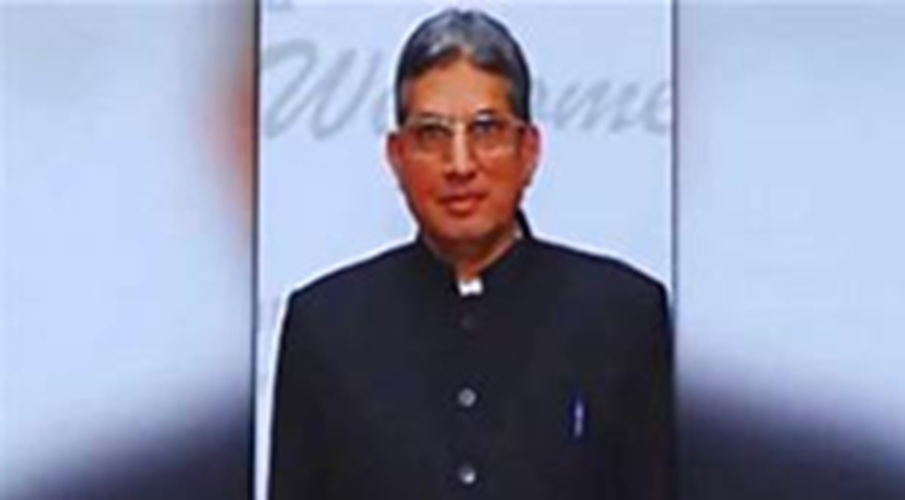 By:- Syed Zahid Ahmad for Maeeshat
By:- Syed Zahid Ahmad for Maeeshat
In 2006 the RBI’s Working Group to examine the financial products used in Islamic banking mentioned that ‘as distinct from modern, conventional banking, Islamic banking due to its inextricable influence of religious doctrines has often evoked a sense of mysticism and curiosity’. RBI officials being financial professionals found it worth to analyze the products used under Islamic banking; nevertheless took ten years to make recommendation about Islamic banking for financial inclusion. RBI’s ruling about Islamic banking largely changed after Dr. Raghuram Rajan became RBI Governor. But the way State Finance Minister declined this proposal; one may guess that mysticism is still the roadblock for Islamic banking in India.
Government declared RBI’s proposal of Islamic Banking as irrelevant
On 9th December 2016 replying to a query about RBI’s proposal on Islamic banking, the State Finance Minister Shri Santosh Gangwar stated that on consideration of inter-departmental group report, it is observed that even to introduce limited products, various legal changes would be required. Moreover, the objectives of financial inclusion for which Islamic Banking was explored by RBI has no relevance, as Government has already introduced other means of financial inclusion for all citizens like Pradhan Mantri Jan Dhan Yojna, Pradhan Mantri Suraksha Bima Yojna, Pradhan Mantri Mudra Yojna etc. Earlier it was often asked that if countries like UK, France and Switzerland can adopt Islamic banking, why India can’t go for it? But we forget that unlike these countries India experienced worst communal riots during partition to get independence. Considering the socio – political sensitivity of Islamic banking, after few incidences of religious intolerances in recent past, it was not easy for the Government to approve proposal of Islamic banking.
Islam basically guides the humanity to make fair transactions
Based on level of economic development, the model of banking and finance for particular economy may differ from other. Historically the models of banking and finance have changed drastically. Institution of banking was not found during 7th century. Similarly the so called modern banking may not find place after 2175 because with digitalization of money we are changing way of financial transactions. Had Islam described any banking model in 7th century that would have observed unfit for 21st Century? Since Islam is a Godly defined standard art of living; meant for present and future civilizations; instead of prescribing any particular banking model for a particular economy, Islam through ethical principles guides the humanity to transact fairly at any point of human civilization. According to Islamic teachings accumulation of wealth through interest or by any unethical practice is prohibited; wealth should not be hoarded with misery; nor should circulate among the richer only. Islam also guides the humanity to attain economic growth by inducing need based expenditure. Islam also guides the humanity to provide support (from excess of wealth) to the poor and needy among relatives, neighbours, prisoners and wayfarers. Islamic teachings are so secular that even in practice like Zakat (specific financial prayer) fractional amount is provisioned for support to non Muslims also.
Islam has not guided any particular religious banking model
Islam being a religion for all humanity and not for Muslims only lays principles for all human beings. Since, no banking model is proved to be guided by Quranic Ayats or by practice of Prophet Muhammad ﷺ, or his companions, whosoever claims any particular model as Islamic banking may be attempting to present self defined model of Islamic banking otherwise. That’s why despite holding 32% asset of so called global Islamic banking asset, there is no bank on the name of Islam in Saudi Arabia. The term of Islamic banking is rather used by such bankers who intend to draw surplus capital hold by Muslims out of Saudi. Nevertheless need to access financial services without indulging in interest and other unethical practices is a genuine need for Muslims in India and around the world. With no provision of banking without interest in India, after observing upsurge trend in business of Islamic banking in more than 50 countries, Muslims in India considered it as a solution to get rid of interest. Thus Muslim community with less than one percent representation in the regulatory body (RBI) kept appealing for Islamic banking in India.
It took a decade for RBI to change its rulings about Islamic Banking
The story of Islamic banking in India began way back 2005 when RBI constituted an internal Working Group under Anand Sinha to examine financial instruments used in Islamic Banking. Report of this Working Group came in July 2006. This Working Group instead of interacting with Islamic banking professional, rather based on study of two theological websites concluded that “in the current statutory and regulatory framework it would not be feasible for banks in India to undertake Islamic banking activities in India or for branches of Indian banks abroad to undertake Islamic banking outside India.” But after Dr. Raghuram Rajan being appointed as RBI Governor, the Ministry of Finance requested RBI to give its considered opinion regarding feasibility of introducing Islamic Banking in India after examining all the legal, technical and regulatory issues relating to the matter. Accordingly, an Inter-Departmental Group (IDG) on Islamic banking was constituted in RBI and the report prepared by the Group was submitted to the Government during February 2016. RBI had also forwarded a Technical Analysis Report to the Government in December, 2015. On the basis of the recommendations of the IDG, it was suggested that a few products similar to conventional banking products may be considered for introducing through Islamic windows in the conventional banks after necessary notification by the Government. Also it was informed to the Government that once decided, RBI would undertake further work to put in place the operational and regulatory framework to facilitate introduction of such products by banks in India.
Calling Interest – free banking as Islamic Banking is a mistake
Considering the socio political fabric of India where Hindus are in majority, it is better to understand that interest is not forbidden for Muslims only, but also for other communities like Christians and Jews etc.. Interest is also not admired in Hindu and Budhist scriptures. Scholar L. C. Jain in his book ‘Indigenous Banking in India’ (published by Macmillan and Company, London in 1929) has written that “from the early Buddhist literature usury was held in contempt, as appears from the special law made against it by Vasishtha – the well-known law-giver of that period. The highest castes were not to be usurers, but the Vaishyas, who were traders, were excluded from the operation of the law. In the Jatakas also, the condemnation of usury can be seen; ‘hypocritical ascetics are accused of practising it”. So ideally Hindus Upper Castes and Buddhists should also refrain from dealing with interest. In short prohibition of interest should not be called as Islamic Banking. It may rather be counted as ethical issue mentioned in almost all religions and not only in Islam.
Banks are not primarily serving the poor and needy class
According to All India Report on Sixth Economic Census, self-finance is major source of finance for 80.1% establishments (46.86 million out of total 58.5 million) in India. It reflects scope for banks to financially support more Indian establishments. On the other data on size of bank credits suggests that not even one percent loan is granted in size between Rs. 2 to 5 lakhs. According to the Report on Fifth Annual Employment – Unemployment Survey 2015-16 whose average monthly income of 66.7% households is not more than Rs. 10,000 can hardly afford to apply for loan over Rs. 5 lakhs. It means banks are not providing one percent loans to 2/3rd of Indian households whose average monthly income is not more than Rs. 10,000. Households are not even drawing one percent bank loans. It is also observed that just 12.3% of total NPAs including write off and structured loans are upon micro industries compared to 55.2% upon medium and large industries. So, if banks want to reduce the NPAs, it is required that Indian banks should shift their focus for credit disbursement from medium and large industries to micro and tiny establishment.
Islam is not against secular fabric of Indian Finance
Indian capital market is largely Shariah compliant without any mystical practices in the stock market. Notably more non Muslims are users of Shariah index compared to Muslims. Similarly if we resolve to design and adopt micro equity products under banking network so as to financially support 50 millions micro and tiny establishments who are otherwise deprived of capital support, we can help India develop one of the best banking products. Besides allowing India to attain a better growth trajectory micro equity products may also create space for religious Muslims to participate in nation’s development. Products like Micro equity finance may allow Indian Muslims along with 50 million micro and tiny sized enterprises may find opportunity to access sought capital in secular manner.
Micro Equity Fund for 50 million Micro and Tiny Enterprises:
Around 50 millions micro and tiny size enterprises in India are deprived of financial scheme. They are too small in size to approach the specified MSE stock exchange. In most cases, the financial need of millions of micro and tiny enterprises (ranges between Rs. 1 to 5 lakhs) is falling below average finance extended by banks and above finance limit for MFIs. So, they are neglected segment in Indian finance. Hope the Government while promoting digital money, may like to support these neglected enterprises. If Government could help them by mode of micro equity finance through available network of banks, MFI and BCs in India, we may see upsurge in registered Udhyog Aadhar in near future. By now only 3.6% establishments are registered under Udhyog Aadhar. Ideally this number should be at least 80% of existing establishments reported by Economic Census.
Two Different modes of Micro Equity Finance:
There could be following two modes to extend Micro Equity Finance –
- Banker may invest fractional share in micro enterprises owned by any entrepreneur with option to buy back investors share periodically. Till the time investor possess unit share in the enterprises, the entrepreneur is supposed to proportionately share the earned profit / loss. This would allow the banker / financier to earn profit through investments along with optional disinvestments on monthly basis or otherwise after expiry of agreement period.
- Any asset (say Shop) be jointly purchased by the entrepreneur and banker; allowing the entrepreneur use the shop after paying monthly rent to the banker against outstanding unit shares in that asset. The entrepreneur should be allowed by the banker to buy back bank’s unit share in the asset at varied price on monthly / weekly basis. The entrepreneur should pay varied amount as rent to the banker according to bank’s outstanding share in the shop at particular month. After selling out all unit shares in the asset, the banker should execute release deed to transfer all legal rights in favour of the entrepreneur; and thereafter the entrepreneur need not require paying any rent to the banker.
Is there any observation report about Micro Equity Finance?
Yes! BASIX Social enterprise group has already taken lead into pilot for Micro Equity Finance in Mewat district of Haryana where actual repayment rate by bank customers are hardly 20%. Contrast to this fact, the repayment rate by customers served through Participatory Micro Finance model in same geography is 99%. BASIX group started the pilot of Participatory Micro Finance in July 2011. They directly finance the livelihood of target customers instead of sanctioning loan on interest. This process involves buying and selling of commodities (after adding profit) to the customers and allow repaying the whole amount in instalments. There were investments in assets by mode of diminishing partnership also. Recently this group initiated pilot project of micro equity in enterprises by mode of diminishing partnership wherein customers are allowed to buy back investors’ share on weekly / monthly basis. Though this pilot is too small and incomplete to cite, interestingly so far the outcome of this pilot is far better than actually projected. Though like any cash driven activity, demonetization has also adversely affected the repayment in this model; nevertheless the retrieved profit is much higher than scheduled profit during June to December 2016.
Micro Equity Finance as innovative product for micro enterprises
The limited scope to introduce Islamic banking product through equity mode in Indian market is in fact a very big opportunity. All we need to explore possible product sub categories for equity financing. This could be explored through portfolio management, mutual funds and equity financing (direct as well as through venture capital). There is scope to develop different need based products in Indian economy. Equity financing could be for listed / unlisted but registered (under MCA) companies. Equity could be simple equity or Diminishing Equity Finance. Even through Diminishing Equity Finance we can provide support to customers to accumulate capital in form of assets / network for companies.
Huge untapped market for Micro Equity Finance
So, there is huge scope for equity financing in India subject to work we do before presenting the prospects of equity financing for Indian economy and banking segment in a secular fabric without calling it Islamic or Shariah banking. The people who like to market it as Shariah banking can do it in their own pockets / markets to grab potential customers. But until Indian economy tastes the fruits of equity financing through banking network, it is very crucial that financial experts proposing equity finance to Indian banking segment should not propagate concept of Islamic Banking. Once the equity finance yields better returns than other asset side products used under conventional banking, the banks would self demand for some more innovative products that could bring better returns.
Challenges for Micro Equity Finance in India
There are still some challenges to propose equity financing in India. The banking segment has very little experience in equity financing and majority of genuinely needful customers are not eligible to approach banks or stock markets for equity finance. Considering the limited to finance less than 30% of paid up capitals through equity investments, it would be a better way to suggest banks to invest in financial institutions or cooperatives having reach to poor and needy customers actually deserving the micro equity finance. Besides limitation to invest less than 30% paid up capital, banks also need to assure better returns with minimum NPAs. Considerably the fact that just 12.3% bank’s NPAs (including write offs and restructured loans) are with micro industries against 55.2% NPAs with medium and large industries; banks may like to reach more micro and tiny establishments through MFI or cooperatives. These institutions may not be constrained through cap of investing less than 30% paid up capital. Banks can reach to maximum unbanked people with better returns and lesser NPAs.
Micro Equity Finance may help creating transparent economy
So, in short we have to propose a new strategic plan to boost financial inclusion for inclusive growth so that more capital should flow to poor and deprived communities. We have to suggest means to reduce banks NPAs and increase returns without exploiting the borrowers. We also need to link equity financing with digital payment where transparency is at par level and does not allow corruptions. We should propose to suggest that x amount of equity promoted y amount of value addition after c amount of consumption and i amount of capital accumulation. Hope we will professionally present our modified concept in Indian economy.
Micro Equity Finance may help India reform domestic economy
Islam is a secular religion based on Godly prescribed guidelines to make a justified economy to live in. Islam has not prescribed any particular model of banking; but set principles to do transactions without exploiting anyone. The financial products based on equity can be introduced as pilot project in India without any legal problem. There is huge untapped market for micro equity finance in India where around 50 millions micro and tiny enterprises are deprived of finance from formal financial sources including banks and stock markets. Micro equity finance may not just enable millions of unorganized sector enterprises, but also enable us to know how much value addition is done through micro equity extended to micro enterprises. Through micro equity finance we may also be able to make better estimate for capital formation in our economy. This product can better support digital monetary transactions and may also be supportive to launch transactional tax in future. At last micro equity finance can not only support the poor workers engaged as own account workers in the unorganized sector, but also enable millions of Muslims deal freely along with maintaining secular fabric of Indian finance.





0 Comments